Your insight into religious freedom
July-October 2023
Challenging injustice in Myanmar/Burma
Also inside this issue: Feature: Afghanistan - Leave no one behind In focus: The emerging implications of Nigeria’s elections and more...
 Jack Taylor/AFP via Getty Images
Jack Taylor/AFP via Getty Images
Lead story: Myanmar
Challenging injustice in Myanmar/Burma
Hearing the news that Reverend Samson had been arrested and imprisoned was like hearing that Myanmar’s military regime had imprisoned one of our own.
We’ve worked with Reverend Dr Hkalam Samson for decades. Many of the team fondly remember his visit to our office in 2018, where he led our staff prayers with faith, humility and humour. His unjust imprisonment on trumped-up charges is one of the most alarming developments in Myanmar/Burma since the military coup in 2021.
To arrest, jail and prosecute one of the country’s most prominent Christian pastors is a sign of how hostile this regime is to religious and ethnic communities.
Rev Samson has dedicated his life in service to others: from speaking out against the human rights abuses that religious and ethnic communities are suffering, to hosting memorial services for the victims of military air strikes; from providing humanitarian aid and support to those in need, to hosting a prayer meeting with democracy leaders.
In the eyes of the military junta, that makes him a threat.
A travesty of justice which must be overturned
Since the coup, over 20,000 people have been imprisoned; Rev Samson is one of several religious leaders among that staggering number. He has been prosecuted – like most religious and political prisoners – on trumped-up charges under counter-terrorism laws, which are routinely used by the military to silence opposition.
In April, Rev Samson was sentenced to six years in prison on charges of ‘incitement’, ‘unlawful association’ and an additional charge under the counter-terrorism law.
His arrest came after he held a prayer meeting with members of the opposition National Unity Government (NUG), and additional meetings with the democratic and ethnic opposition.
An intense targeting of religious minorities
Rev Samson’s arrest and imprisonment comes amid one of the most serious human rights and humanitarian crises in Myanmar’s history.
The military regime is inherently motivated by a religious nationalist agenda, which sees Myanmar as a Buddhist nation and wants to crush non-Burman, non-Buddhist ethnic and religious communities. The military has long stirred up anti-Muslim hatred, resulting in the genocide of the Rohingyas five years ago, and a wider campaign of discrimination, hate speech and violence against the Muslim population throughout the country.
And it’s become clear that the military have Christians in their sights once again: while everyone in Myanmar is suffering the consequences of the coup, it does appear that Christians have been targeted with particular intensity. Several pastors have been murdered and others jailed in Chin State alone, and several hundred churches in Chin, Kachin, Karen and Karenni states have been shelled and destroyed. Meanwhile, in parts of Chin state, new regulations came into force this year which required Christians to register seven days prior to attending worship.
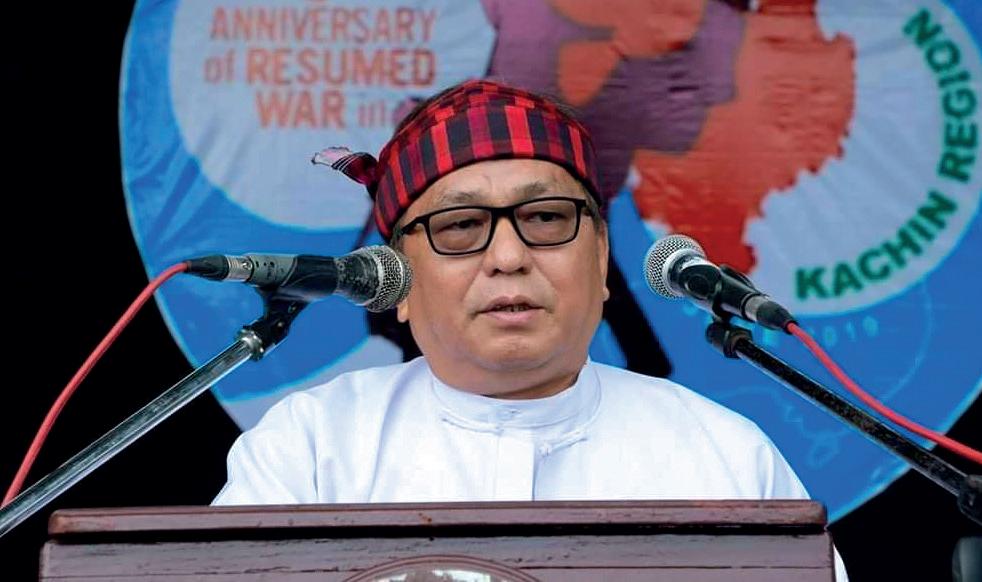
2
All images by CSW unless otherwise stated. Unless otherwise stated, Scripture quotations taken from The Holy Bible, New International Version® NIV® Copyright © 1973 1978 1984 2011 by Biblica, Inc. TM. Used by permission. All rights reserved worldwide.
3
Rev Samson
Lead story: Myanmar
Signs of hope?
Together with other organisations, we’ve been campaigning since the coup to secure sanctions targeting the flow money, arms and resources which keep the military regime afloat.
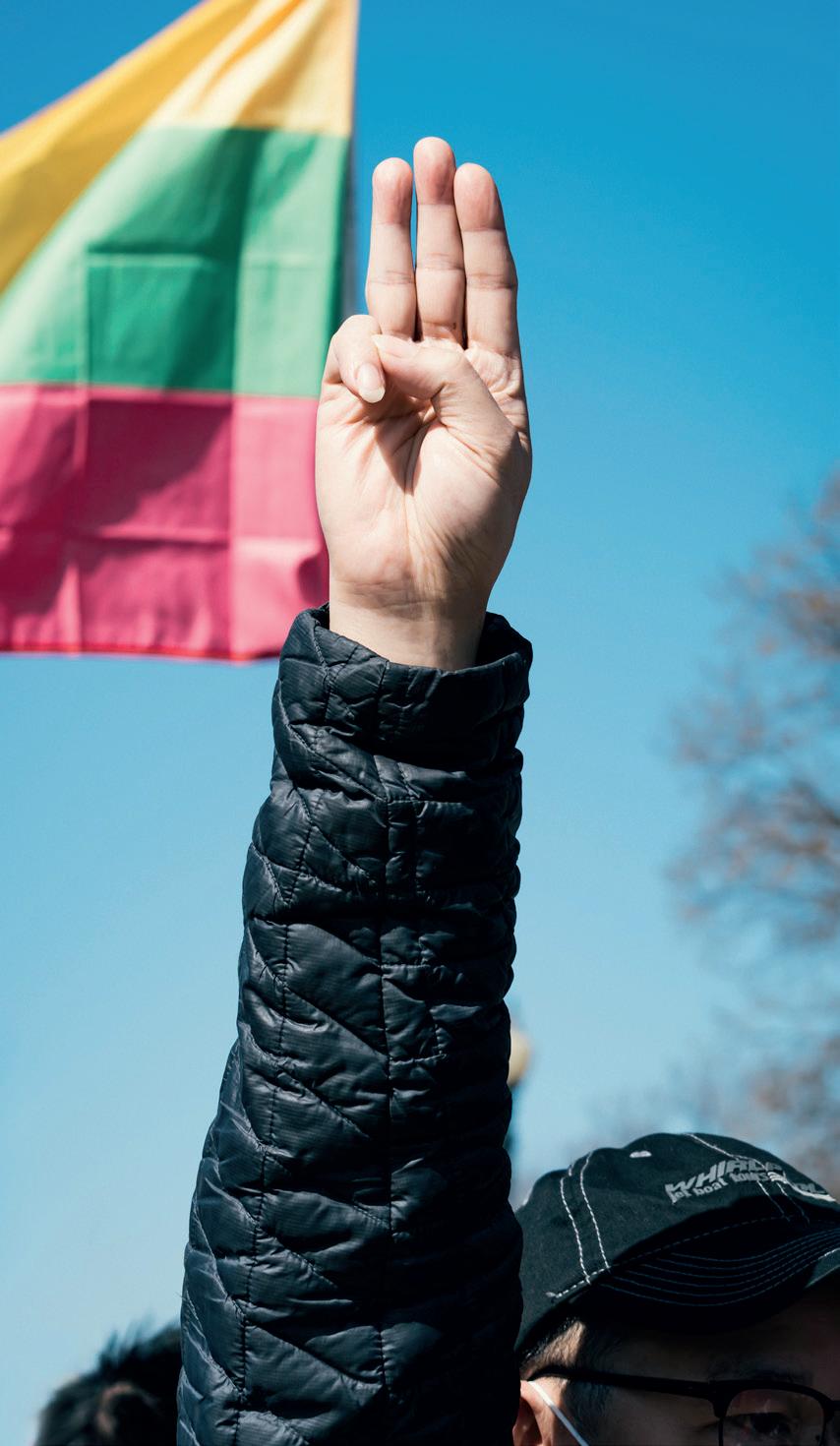
You may have been one of many supporters who wrote to the Foreign Secretary asking the UK government to do more to end the supply of aviation fuel to the military junta through sanctions –if so, thank you!
Earlier this year we welcomed new sanctions imposed by the governments of Australia, Canada, the UK and the United States. Targeting sanctions to reduce the military’s access to finance, fuel and arms is vital – these fresh rounds of sanctions are meaningful steps in cutting the lifeline of arms, aviation fuel and resources which keep the military regime afloat. But it isn’t enough. We won’t stop advocating and campaigning until we see the implementation of a global arms embargo which prevents the military from getting its hands on additional weapons with which it can wage violence on those calling for democracy.
Nothing is impossible with God
Because you refuse to stay silent, the UK Government hears the collective voice speaking up on behalf of Rev Samson and the people of Myanmar. Never underestimate the importance of the role you play!
Although our hearts are heavy at the scale of the suffering, we follow Rev Samson’s example of being a champion for human rights, and we will not give up.

Scan the QR code or visit csw.org.uk
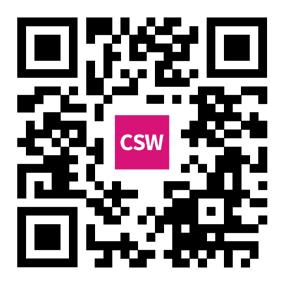
/FreeRev Samson to email your MP asking them to publicly call for Rev Samson’s release. You can also add your name to our open letter petition to the UK Foreign Secretary asking the UK government to increase political pressure to help secure his release. Sign online at csw.org.uk/RevSamson
If you’d like us to send you campaign cards to give out in your church, email us at admin@csw.org.uk
'[He is] a man who is more interested in the common good than his own affairs. He is a man who knows God and loves God. He is a preacher, so he has no enemies. He is a person who sacrifices himself and helps others.’
#FreeRevSamson.
Zung Nyaw, Rev Samson’s wife
Photo: Rev Samson/Facebook
Photo: Unsplash-gayatri malhotra
5 4
Leave no one behind
Countless people are fleeing the horrors in Afghanistan, where their religious or ethnic identity puts them at risk. Yet even in another country, life isn’t easy. They can’t go home because their lives are in danger there; but in the new country, they can’t work or even access healthcare or housing – and they often still experience harassment and discrimination
It’s a devastating situation. But with your help, we’re working so that these desperate refugees can finally find a safe place to rest their heads.
Surraya is Shia Hazara, an ethnoreligious group that is particularly targeted with violence and brutality by the Taliban. Surraya told us: ‘After the takeover by the Taliban in 2021, the safety and survival of many Afghan nationals became impossible if they were to remain in Afghanistan. This was particularly true for the Hazara ethnic group.

�‘The return of the Taliban meant a return of terror for the Hazara people. With all those stories I heard from my friend about how brutal they were, I could not even imagine facing one of them. A huge majority of the Hazara people had to flee Afghanistan to avoid being killed by the Taliban and IS-K.
‘When Kabul fell, we packed our clothes and fled to Pakistan. We had to leave everything behind. Our house, car and all the furniture we had all worked hard to own. We did not have the chance to even sell them.’
Targeting those with the power to make a difference
Earlier this year we commissioned a short film, Leave No One Behind, telling the stories of religious minority refugees from Afghanistan – people like Surraya. We held an exclusive screening of the film in the UK Parliament and asked you to invite your MP to attend. Many of you emailed your MPs, and we are grateful for the turnout at the screening.
As the film played, some MPs were visibly moved by the stories they heard. We gave them our accompanying in-depth report, which contains tailored recommendations for the politicians and decisionmakers who read it – including UK MPs – so they know exactly what they need to do.
The following week we held a similar event with civil society organisations in Brussels, and also met with MEPs at the EU. Our multifaceted advocacy targets those who have the power to make a real difference for Afghan refugees.
"The fact that we are Christians put my life and the life [of] my family in serious danger."
Ali Zafar, refugee from Afghanistan
An Afghan refugee
7 6 Feature: Afghanistan
Surraya went on to describe her family’s life now:
‘Here in Pakistan, we are living under extreme hardships. We do not have access to medical treatment, or the means of paying for any medical treatment. The government health facilities request proper documentation, which we lack. We do not have access to schools and universities. We cannot find jobs due to a lack of documentation and language barriers.
‘Our future in Pakistan remains highly uncertain. The government of Pakistan has not given us legal refugee status and the local Islamabad police continuously harass us.’
Extreme hardships
We heard story after story like this as we worked on the film and the report. Time and again, people told us that they had fled Afghanistan in fear of their lives, and now found themselves facing extreme hardships.
These people have done nothing wrong. They deserve to live in peace and safety just as much as anyone else – free to practise a religion or belief of their choice.

Your support is enabling us to keep working towards that future, as we campaign on behalf of religious minorities from Afghanistan – those who were forced to flee, and those who remain and live in fear of the consequences of expressing their beliefs openly. Thank you.
Forbidden to use their own language
For some indigenous communities in Vietnam, speaking their mother tongue carries a high risk – particularly when practising a religion or belief. Restrictions on indigenous languages have been imposed on Khmer Krom Buddhists, Montagnard Christians, Hmong Christians and many other indigenous religious groups.

Thanks to the power of advocacy, there are some signs of hope. Yet these improvements are few and far between.
It is an internationally protected right for indigenous communities to use their own language and culture. Moreover, according to Vietnam’s constitution, ‘every ethnic group has the right to use its own language and system of writing, to preserve its national identity, and to promote its fine customs, habits, traditions and culture’.
But what happens in practice tells a different story.
Go to csw.org.uk/AfghanistanHub
to find out how you can take action on behalf of faith and belief communities in Afghanistan. Together, we can show them that they haven’t been forgotten.
In most regions, the use of both spoken and written indigenous languages during religious services
has been severely limited, or outright prohibited.
These restrictions are deeply rooted in government suspicion.
The Communist Party of Vietnam has long been distrustful of large gatherings of indigenous people, suspecting them of seeking to build their own independent state or plotting to overthrow the government.
‘We had a Christmas celebration with banners in different languages such as Jarai [and] Ede,’ explained one Christian from an indigenous people group. ‘The authorities did not like it, so they forbade us from using the banners in our languages.’
'Our future remains highly uncertain’
Protests in London. Photo: Unsplash/Ehimetalor Akhere Unuabona
'They deserve to live in peace and safety just as much as anyone else...'
‘The authorities did not like it…’
9 8 Feature: Vietnam
Khmer Krom Buddhists gathered in front of Chedey temple in Tap Son village.
Khmer Krom Buddhists
The Khmer Krom are an indigenous group located primarily in southwestern Vietnam, who speak the Khmer language. Like many indigenous religious communities, Khmer Krom Buddhists have experienced numerous violations of their language rights, as well as their right to freedom of religion or belief.
For example, Khmer Krom Buddhist monks are supervised by the government whilst conducting their religious ceremonies, and the content of religious books and teaching materials in Khmer language is strictly controlled and restricted by the authorities. Several Khmer Krom temples have been threatened with demolition, and in some cases these threats have been carried out.
‘[The government always suspects] that we use our language to teach other things and that our intention is antigovernmental,’ said a Khmer Krom representative.
A positive step forward?
Several years ago, the government seemed to take a positive step forward. They introduced a programme of Khmer language classes in public schools where Khmer Krom students are the majority.
This policy should mean that the native language is taught for two to three hours per week. In practice, however, the programme was not implemented consistently. The state provided poorlywritten materials, and students have been
forbidden from bringing Khmer textbooks over from Cambodia.
In response to this, several Khmer Krom Buddhist monks teach Khmer in their temples. Local authorities have opposed this, however, and several religious teachers have been intimidated and even imprisoned.
Rare signs of hope
In December 2022, CSW published a report called ‘Belief and Belonging’, which explores the intersection between freedom of religion or belief and indigenous rights. Alongside the accounts of harassment, monitoring, fines and arrests, one participant shared a few small signs of hope:
‘Thanks to advocacy on freedom of religion or belief, there is some improvement. We can now use our language a bit in some church meetings. For example, some people are allowed to use the Bible in their language, including Ede. In some churches, they can use their language. Sometimes they can even use banners in their language. But it is case-by-case, not an overall improvement. It depends on the local government. It is not a consistent policy.’
This is encouraging. But such accounts are rare, and even when there are improvements, the progress described is not enough.
The government of Vietnam is failing to uphold its citizens’ right to freely practise their religion or belief, in their mother language. This flagrant gap between policy and practice must be addressed.
A day in the life of our United Nations Officer
Back in March, our United Nations Officer Claire Denman was on assignment at the UN Human Rights Council (HRC), which meets three times a year. Our work at the UN is a key part of our overall advocacy strategy, and is only made possible by your praying and giving. Claire tells us about a typical day at the UN.
Monday 20 March 2023
Today I’m in Geneva as the HRC enters its fourth week. I’m only here for a few portions of the five-week session, so I’m keen to make the most of every networking and speaking opportunity.
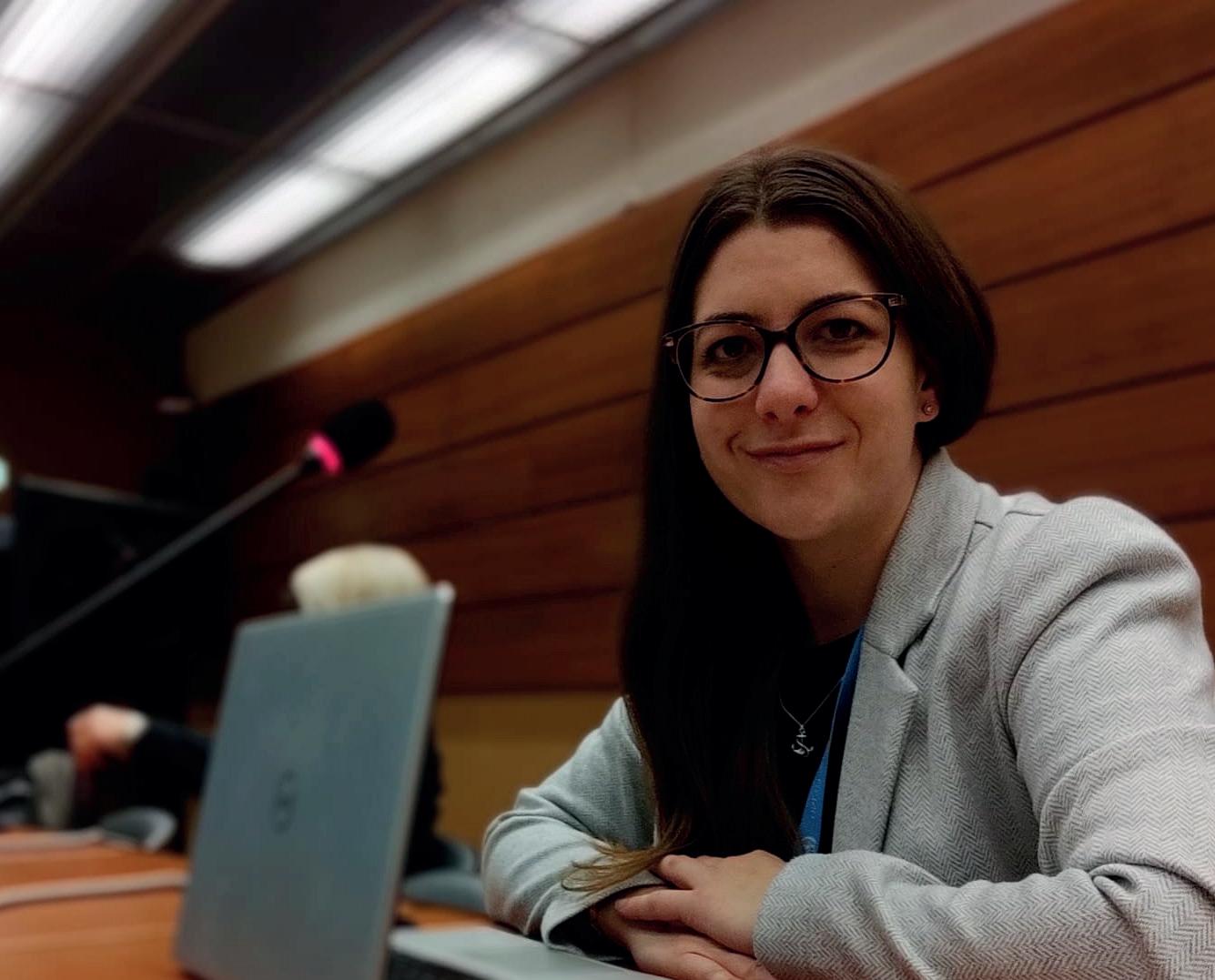
9am: I start the day by meeting one of our partners from Iran, Mansour Borji, to pick up our passes and go through security. Mansour is the Advocacy Director of Article 18, an organisation which advocates on behalf of Christians facing persecution in Iran.
It is a huge privilege to be able to bring expert voices like Mansour’s to the UN. He is here to speak at a side event1 cosponsored by CSW later in the week.
10am: This week, country-specific issues of concern are being discussed. First up, there is an interactive dialogue2 with the Special Rapporteur3 on Myanmar/Burma. CSW’s UN accreditation gives us the chance to speak, but it is still very competitive. Thankfully I’m able to deliver 11 out of the 15 statements CSW had registered for this session.
Feature: Vietnam
Claire at the UN 2022
11 10 Feature: UN
11:30am: The dialogue with the Special Rapporteur on Iran follows straight after. A wide range of human rights issues are discussed, including freedom of religion or belief.

1pm: I join a meeting about a draft resolution4 on Nicaragua, led by Brazil, Canada, Chile, Colombia, Costa Rica, Ecuador, Paraguay and Peru. It’s heartening to see countries from the Latin America region taking a lead, trying to hold Nicaragua accountable for its ongoing oppression of independent voices and fundamental freedoms.
2pm (lunchtime): Whenever a member of CSW staff is on an assignment, we always ask a colleague to support us in prayer. I receive an encouraging message from my prayer partner, Eloise:
‘We read Psalm 147 in our team prayer meeting this morning and I'll be praying it over you… Heavenly Father, we put our hope in your unfailing love today. Would your will be done in and through Claire during her time in Geneva. Amen.’
3pm: Back in the main plenary, during the interactive dialogue on North Korea, I raise CSW’s concerns about grave human rights violations in that country. As part of our statement, we called for the immediate release of all those detained in prison camps because of their religion or belief.
I also highlight the chronic food scarcity and the plight of refugees who have escaped to China – who now risk being forcibly returned to North Korea, often with dire consequences.
All our statements can be found online. Type ‘hrc52’ into the search bar at csw.org.uk
6pm: I leave the UN headquarters after a busy day. I’m looking forward to the rest of my time here, especially the impromptu conversations about CSW’s work, which only happen in person.
Other key moments
23 March: A highlight for me is our Iran side event with Article 18, Middle East Concern and Open Doors. We present the findings of our joint report and hear from Iranian Christians Pastor Victor Bet Tamraz and his wife Shamiram Issavi.
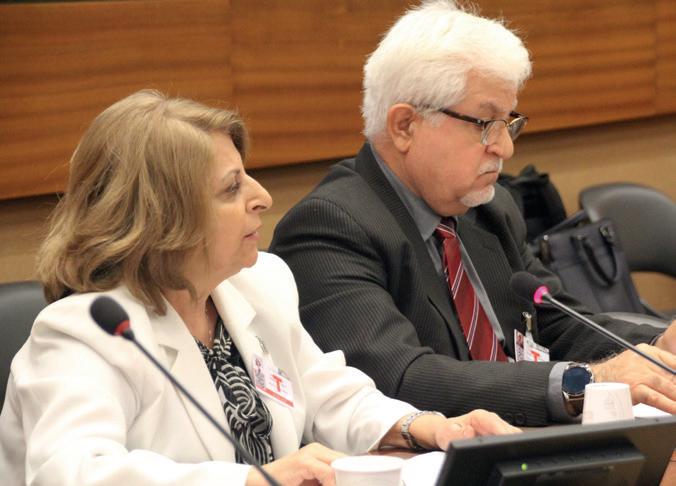
You can hear the emotion in his voice as Victor describes being closely monitored, interrogated, arrested and even threatened with the kidnap of his children: ‘With a smirk on his face, my interrogator told me [that] children [go] missing every day…’
It is so important that those who have experienced such injustice are given a platform, to share their stories in their own words.
3 April: The resolution on Nicaragua is voted in, which is brilliant news! Among other things, this means that UN experts can continue monitoring and reporting on Nicaragua. It also allows the situation to be discussed again during the HRC, and is an opportunity to keep Nicaragua accountable for its actions.
30 March-4 April: Back in the UK, I continue to follow the rest of the HRC online until it draws to a close. At the next session, we will see how situations have developed. Will the resolutions and recommendations discussed here have been put into practice? We certainly hope so, and will continue to work and pray until we see real change for those who are being oppressed.
Glossary
1. Side event: A seminar-style event that takes place alongside the main plenary. They usually take the form of a panel discussion with expert speakers and victims of violations, followed by Q&A.
2. Interactive dialogue:
A discussion in the main plenary at the HRC. Usually, the High Commissioner or a UN Independent Expert will present the findings of their reports or important updates on a human rights issue. States then get the chance to respond with short statements, followed by NGOs with UN accreditation, like CSW.
3. Special Rapporteur:
An unpaid, independent expert who is elected to advise on either a country or a theme. For example, we work closely with Dr Nazila Ghanea, the current Special Rapporteur on freedom of religion or belief. Their work includes conducting impartial research and raising individual cases with UN Member States.
4. A resolution:
A non-binding document which outlines the views of states on key human rights concerns within a country or on a thematic issue, and what agreed steps the UN will take to address this.
Pastor Victor Bet Tamraz and Shamiram
Pray using p.4 of the Prayer Diary.
Feature: UN
13 12
Mansour Borji at the UN
The emerging implications of Nigeria’s elections
The 2023 elections are likely to go down as one of the most significant moments in Nigeria’s recent history. With instability and insecurity already at unprecedented levels, what are the implications for the country’s religious and ethnic communities?
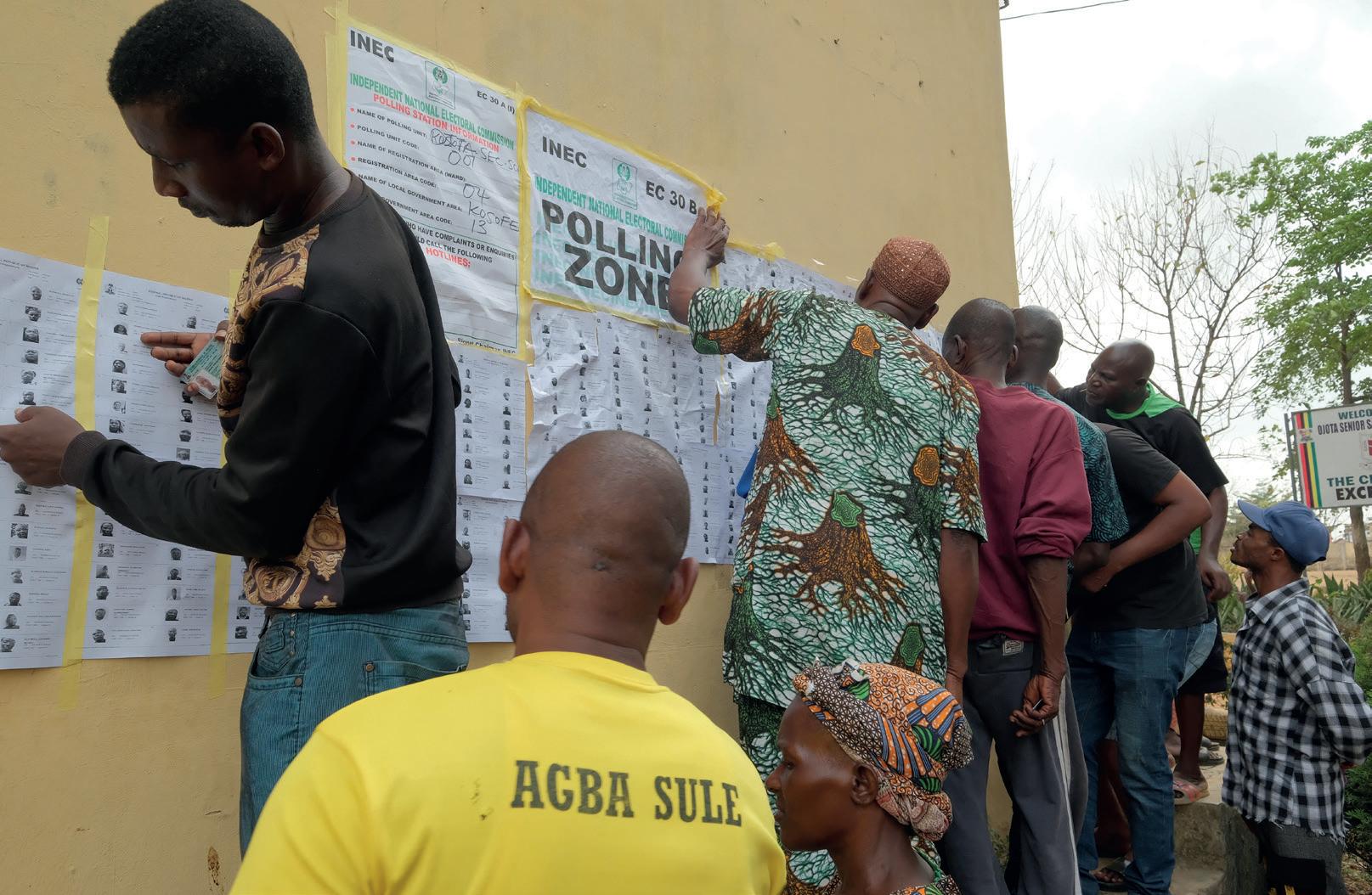
Millions went to the polls in February and March – many voting for the first time, encouraged that their votes would count due to the introduction of electronic transmission of results. This made it all the more frustrating that the vote was marred by serious irregularities, with credible reports of rigging, fraud, voter intimidation, ballot snatching and violence.
‘They have snuffed hope out of us and dealt a permanent psychological injury on the psyche of mostly the young people, who started having faith again in Nigeria...’ said Rev Yunusa Nmadu, CEO of CSW Nigeria. ‘Democracy was murdered in cold blood.’
A surge in violence and violations
Many were hoping the elections would be an opportunity for change; an opportunity to elect leaders who would work to contain the decadeslong crisis of violence and protect religious and ethnic communities who are intensely targeted. Instead, violence surged across the country following the electoral season.
It was particularly appalling in Benue State. Among a series of violent incidents over Easter, was an armed attack on Good Friday, on a primary school where displaced people were sheltering. Over 200 were displaced once again, and around 88 people were killed, including children and pregnant women.
‘Killings have been going on every day,’ lamented the outgoing governor of Benue State, Samuel Ortom, on 10 April, after attacks by Fulani militia men had claimed 134 lives over a fiveday period.
Villagers in Kaduna State are also under siege, as kidnappings for ransom resumed after the elections. Many no longer till their larger farms for fear of attack, and are struggling to find alternative sources of income.
A missed opportunity for harmony
The elections presented an opportunity to heal two of the nation’s most significant divides: religion and ethnicity. Sadly, the opportunity was missed by the ruling party, the All Progressives Congress (APC).
Departing from tradition, the party opted for a Muslim-Muslim presidential ticket, initially claiming, that no suitable northern Christian candidate existed. Party spokespersons subsequently stated that the tactic presented the best chance of winning. In one bizarre episode, fake church leaders were filmed ‘endorsing’ the single faith ticket, and were later caught on camera changing their costumes and receiving payments in a parking lot.
Meanwhile in the south, and particularly in Lagos, ethnicity-laced rhetoric was used against members of the Igbo tribe, who were considered by the APC to be opponents. As a result, Igbos were threatened, assaulted and driven away from voting areas, several Igbo owned businesses were set ablaze, and some Igbo homes were attacked and looted.
These tactics not only exacerbated the sensitive fault lines of religion and ethnicity; by all indications they also failed to produce a legitimate victory.
At the time of writing, Nigeria’s political future remains unsettled, following the inauguration of Bola
In Focus: Nigeria
14
Photo: REUTERS/ Nyancho NwaNri
15
‘Attacks by Fulani militia men had claimed 134 lives over a five-day period.'
Ahmed Tinubu as president on 29 May while results were still being disputed in court.
Our ongoing response
It would be easy to lose heart when considering the seeming return to power of the party which oversaw Nigeria’s unprecedented decline in security. Yet we continue to pray for peace, and to advocate for all who are targeted because of their religion or belief, while also highlighting their plight internationally.
Our ongoing response now includes psychosocial training for human rights defenders and survivors of attacks and abductions, which you can read about in the Response article ‘Priceless knowledge’ (January 2023). Following initial workshops in Kaduna State, CSW Nigeria has now conducted them in Bauchi, Benue, Niger, Plateau and Taraba states. So far, 90 human rights defenders and 200 survivors have been assisted.
We know this training is transformational, because the participants themselves have said so. We are deeply grateful to the funders who made this life-changing work possible, and to you for consistently partnering with us in prayer for Nigeria.

(A human rights defender)
(A human rights defender)
‘It is truly eye-opening and healing.’
(Rev Yunusa Nmadu)
(A victim of trauma)
‘This is one of the most rewarding things I have ever done. The response immediately after each training is really encouraging, and we constantly receive calls of appreciation, especially from survivors. Some say their lives have really changed.’
(A victim of trauma)
In Focus: Nigeria
17 16
Pray using p.6 of the Prayer Diary. Visit csw.org.uk/Nigeria for latest developments.
'The training was enlightening... Everyone deserves to know.’
‘We have just been living with these violations – I didn’t realise there were such avenues for help.’
‘I have been living in pain... I got peace of mind yesterday.’
‘This programme transformed my life. When I get home I am going to talk to my wife and family, and will take it to the youth fellowship.’
(Davita Andow, Project Manager, CSW Nigeria)
Photo: Adedotun Adegborioye/Unsplash
Around the world
China
Elder Hu Shigen, a human rights defender and house church leader, was released from prison in Tianjin on 26 March after completing a seven-anda-half-year sentence. Elder Hu was arrested as part of the government’s infamous 709 crackdown in 2015 and later charged with using ‘illegal religious groups’ to ‘spread subversive thoughts and ideas’.
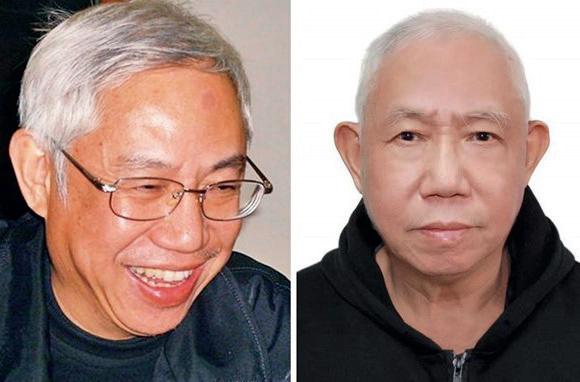
Cuba
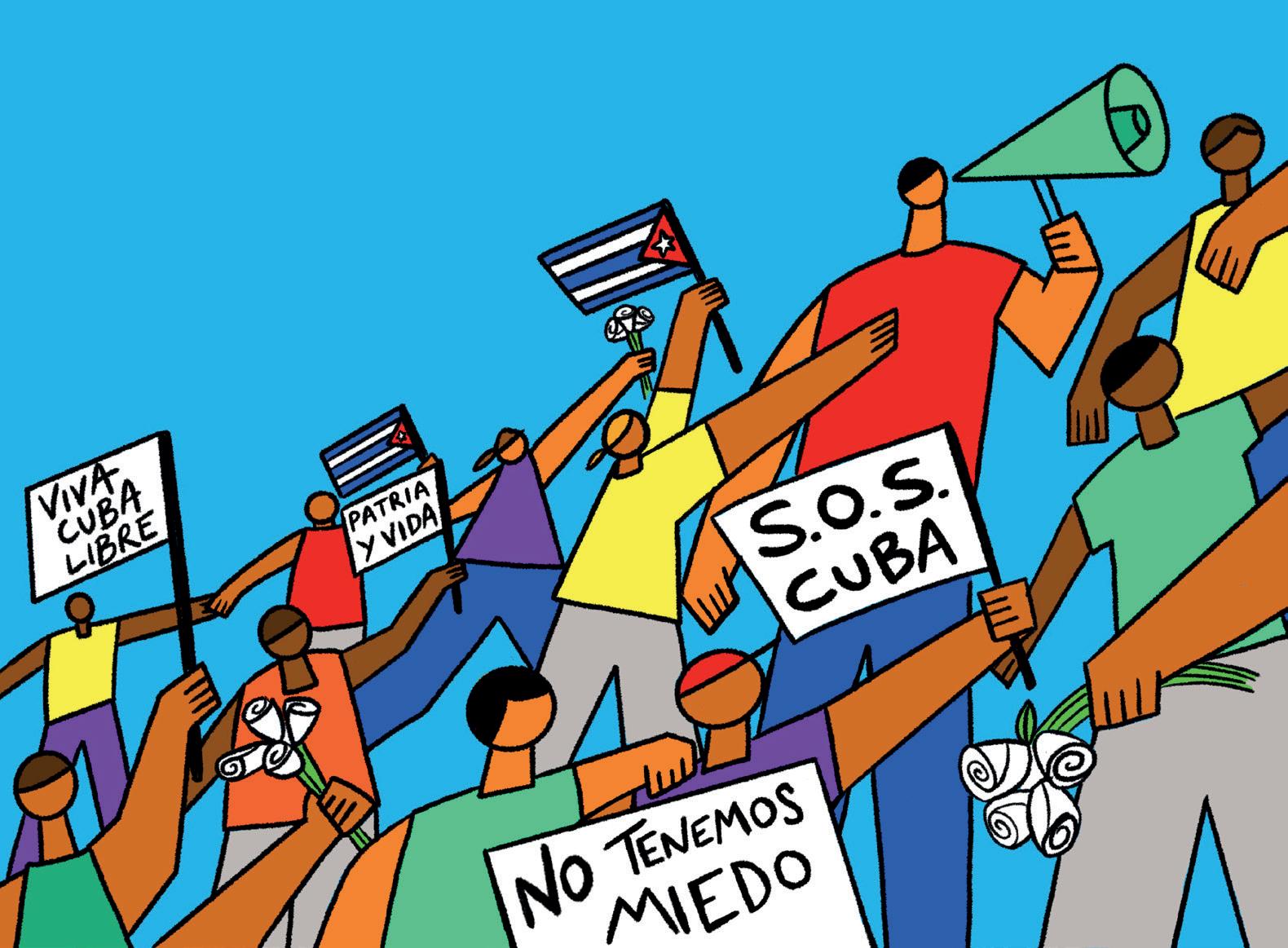
In May, a university student was threatened with expulsion for refusing to sign an oath which he believes conflicts with his Christian faith.
The student – who has asked to remain anonymous out of concern for his safety – explained that he could not sign the document promising to defend socialism and Marxist-Leninism. Yet a professor warned him that it was ‘not negotiable’ and that he would face severe consequences for failing to sign.
Signing the oath would allow the student to join the Territorial Militia Troops, which he is being pressured to join despite having already completed his obligatory military service. He represents thousands of young people across Cuba who are under pressure to comply with government orders that conflict with their deeply held religious beliefs.
He is said to have been tortured whilst in prison, and was denied medical parole despite the fact that he suffered from coronary heart disease. Many other church leaders and human rights defenders, including Pastor Wang Yi, Elder Zhang Chunlei and lawyer Chang Weiping, remain in prison. Christian lawyer Gao Zhisheng is subject to enforced disappearance and may be at high risk of torture and death. No information about his whereabouts is known since he was taken from his home in Shaanxi, northwest China, on 13 August 2017.
Bangladesh
At least one person was killed and dozens more were severely injured when a mob attacked the Ahmadiyya Muslim community’s annual convention in Panchagarh district in March.
The Ahmadiyya community has faced significant harassment in recent years, as Islamist groups have demanded that the government declares the community to be non-Muslims. The full extent of the damage of this latest violence is unclear; however, it is deeply concerning that no action was taken to prevent it, considering that reports had emerged of youths vandalising Ahmadi properties and graves the day before the attack took place.
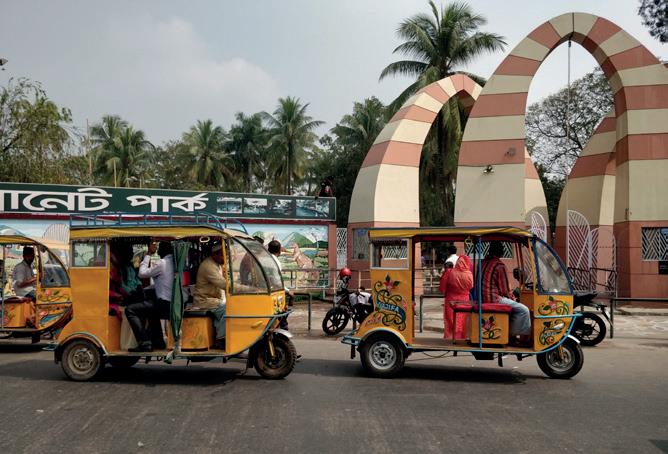
18
19 News update: Around the world
'The Ahmadiyya community has faced significant harassment in recent years.'
'Thousands of young people are under pressure to comply'
Elder Hu Shigen, before his detention in July 2015 (L) and after his release in March 2023 (R).
Play your part in tackling injustice
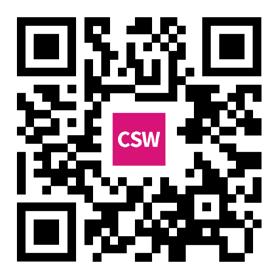

Registered Charity No. 281836
Dr Hkalam Samson is a courageous defender of human rights, and one of the most outspoken Christian leaders in Myanmar. This made him a target for the ruling military junta. In April, Rev Samson was sentenced to six years in prison on trumped-up charges. We work to raise cases like his with people in power – calling for action that brings freedom and justice. Through giving, you can play a part in this work. Give £8 a month and help Rev Samson and others facing injustice for their faith. T +44 (0)20 8329 0010 @CSW_UK /CSWUK csw.org.uk PO Box 99 New Malden Surrey, KT3 3YF United Kingdom
Reverend
csw.org.uk/PlayMyPart
Photo: Rev Samson/Facebook
 Jack Taylor/AFP via Getty Images
Jack Taylor/AFP via Getty Images

















